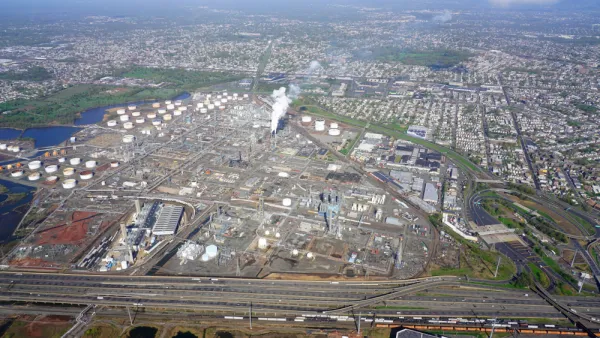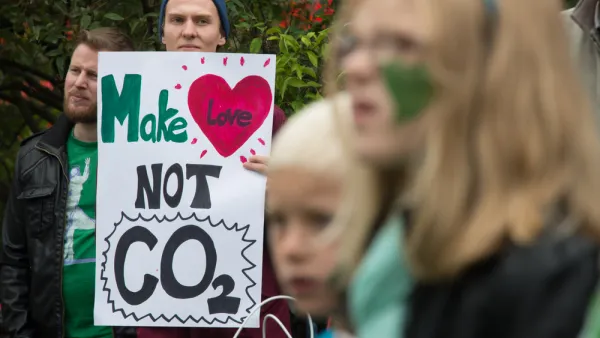Irvin Dawid discovered Planetizen when a classmate in an urban planning lab at San Jose State University shared it with him in 2003. When he left San Jose State that year, he took with him an interest in Planetizen, if not the master's degree in urban & regional planning.
As a long-time environmental activist, he formed the Sustainable Land Use committee for his local Sierra Club chapter and served six years on the Bay Area Air Quality Management District’s Advisory Council from 2002-2008. He maintains his interest in air quality by representing Sierra Club California on the Clean Air Dialogue, a working group of the Calif. Environmental Dialog representing business, regulatory and public health/environmental interests.
Major interests include transportation funding, e.g., gas taxes, vehicle miles traveled (VMT) fees, road tolls and energy subsidies that lead to unlevel playing fields for more sustainable choices.
He hails from Queens (Bayside) and Long Island (Great Neck); received an AAS in Fisheries & Wildlife Technology from SUNY Cobleskill and a B.S. from what is now Excelsior College.
After residing for three years on California’s North Coast, he’s lived on the San Francisco Peninsula since 1983, including 24 years in Palo Alto. Home is now near downtown Burlingame, a short bike-ride to the Caltrain station.
He’s been car-free since driving his 1972 Dodge Tradesman maxi-van, his means to exit Long Island in 1979, to the junkyard in 1988.
Major forms of transportation: A 1991 'citybike' and monthly Caltrain pass, zone 2-2. "It's no LIRR, but it may be the most bike friendly train in America."
Irvin can be reached at [email protected]

What Went Wrong With Oregon's Climate Bill?
The Oregon Climate Action Program, which would have priced carbon emissions by establishing a cap-and-trade program similar to the one in California, was defeated on Saturday, the penultimate day of the 2019 legislative session.

Courts May Fine Cities That Fail to Build Housing in California
Gov. Gavin Newsom signed his first budget, the state's largest ever at $215 billion. Housing activists will be pleased to learn that it has, to use Newsom's terms, both "carrots and sticks" to compel cities to produce more housing.
Deaths of Seven Motorcyclists Results in Resignation of Motor Vehicle Registry Chief
A pickup truck driver towing a trailer on a two-lane rural road in New Hampshire on June 21 is charged with seven counts of vehicular homicide after colliding with a group of motorcycle riders. Attention has turned to his commercial driver's license.

New Jersey to Price Carbon Emissions from Electricity Generation
When the N.J. Department of Environmental Protection adopted new rules for power plants on June 17, the Garden State becomes the tenth to participate in a cap-and-trade program known as the Regional Greenhouse Gas Initiative.

Carbon Neutrality: What Does it Mean, and Is it Possible?
Are 'zero carbon' goals the most effective way to cut greenhouse gases, or are they the most politically feasible strategies? NPR climate and environment reporter, Nathan Rott, explores the challenge in an interview on All Things Considered.

























